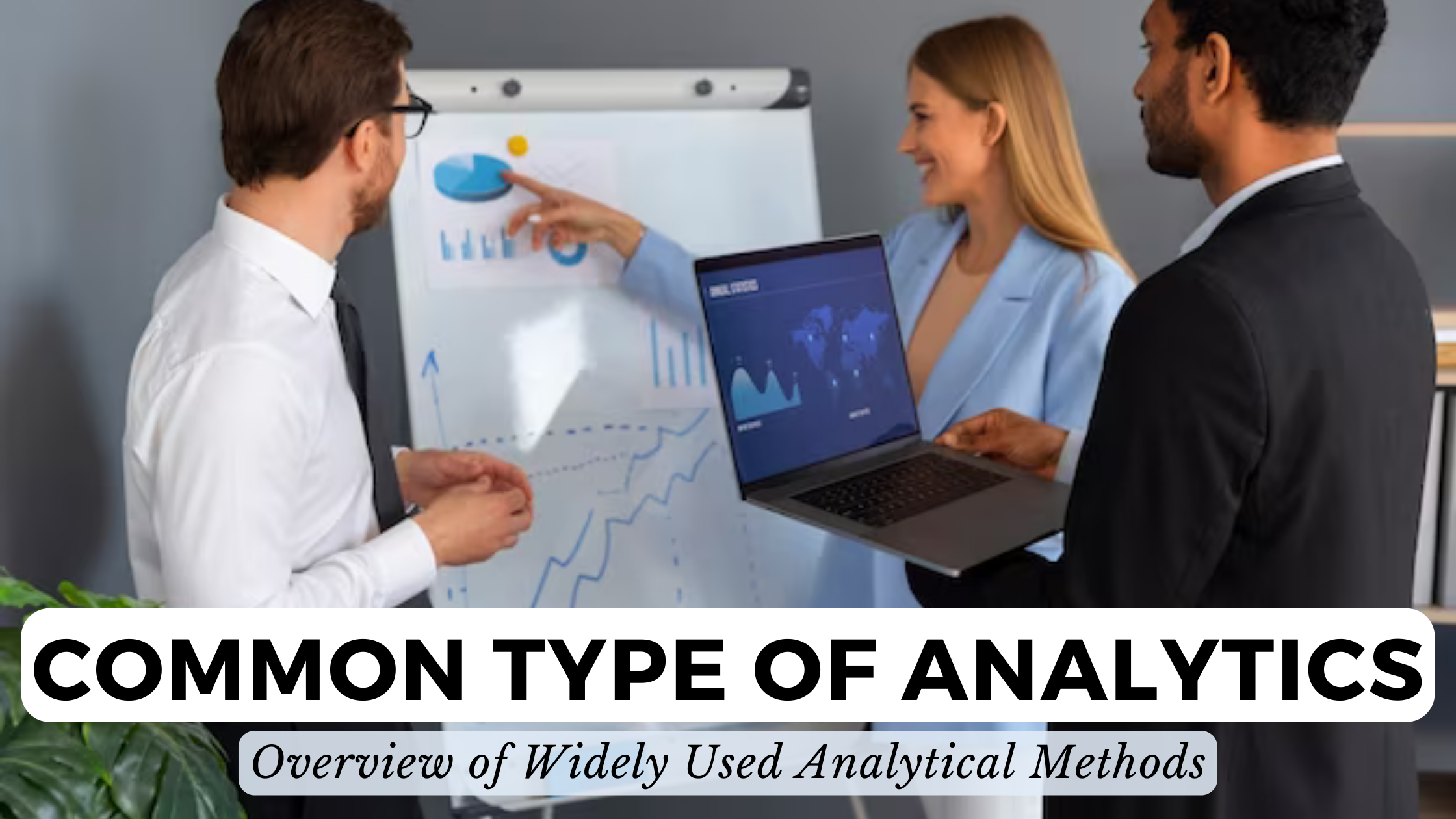Common Type of Analytics: Overview of Widely Used Analytical Methods
- Data as a Service (DaaS) Software Marketing & Analytics


Common Types of Analytics: Overview of Widely Used Analytical Methods
In the dynamic landscape of data-driven decision-making, analytics plays a pivotal role in extracting meaningful insights from a sea of information. Understanding the common types of analytics is crucial for businesses looking to leverage data for strategic advantage. In this article, we’ll explore widely used analytical methods and introduce relevant SaaS products that empower organizations in their analytical endeavors.
1. Descriptive Analytics
Descriptive analytics involves the interpretation of historical data to understand what has happened in a business. Tools like Google Analytics provide comprehensive insights into website traffic, user behavior, and other key metrics, allowing businesses to assess past performance and make informed decisions.
2. Diagnostic Analytics
Diagnostic analytics focuses on identifying the reasons behind past outcomes. Tableau is an exemplary tool that not only visualizes data but also helps in diagnosing the factors contributing to specific trends or occurrences, enabling organizations to address issues at their roots.
3. Predictive Analytics
Predictive analytics uses statistical algorithms and machine learning techniques to identify the likelihood of future outcomes based on historical data. RapidMiner is a powerful platform for predictive analytics, assisting businesses in forecasting trends, making proactive decisions, and staying ahead of the competition.
4. Prescriptive Analytics
Prescriptive analytics recommends actions to optimize outcomes based on predictive analysis. IBM Watson Studio is a versatile tool that not only predicts future trends but also suggests the best course of action, providing valuable guidance for decision-makers.
5. Diagnostic Analytics
Diagnostic analytics focuses on identifying the reasons behind past outcomes. Tableau is an exemplary tool that not only visualizes data but also helps in diagnosing the factors contributing to specific trends or occurrences, enabling organizations to address issues at their roots.
Conclusion: Navigating the Analytical Landscape
In conclusion, a robust analytical strategy often involves a combination of these methods, ensuring a comprehensive understanding of data. SaaS tools like Google Analytics, Tableau, RapidMiner, and IBM Watson Studio offer powerful solutions to cater to different analytical needs.
Discover exclusive deals on these top analytics solutions and more at Subscribed.FYI Deals. Sign up for free today and unlock savings on 100+ SaaS tools, providing you with insights and cost-effective solutions to manage your subscription stack.
Relevant Links:





